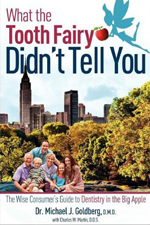I had just finished discussing the oral health of a patient who was new to my practice when she asked me “why hasn’t anyone ever shown me or discussed things like this with me before?” She proceeded to tell me of all the wonderful Dentists she’s seen, people who she respected and liked. She was amazed at the level of detail, the photographs, the analysis and the time I took to discuss all of it with her. Her comment took me a little off guard and after she left I started thinking of WHY I do things that many other dentist don’t.
I won’t even discuss the issue of Insurance and why it is ruining health care by promoting “sick care” and devaluing Doctors’ time and communication time. That’s a whole other blog!
Have you heard of the 80/20 rule? It’s applicable in many areas and I think it applies to Dentistry as well. 80% of people have fairly routine dental issues like decay and gum disease. 20% however, have more complex issues such as bite issues and systemic interactions. Because of my training and teaching experience, I see these issues when others may not. Most Dentists treat everyone like the 80% because that’s how they’re taught in Dental School. I look at everyone like the 20% first, and if they’re lucky to be in the 80%, great for them and it makes my job of helping them stay healthy, easier.
Is the 80/20 rule WRONG?
But I’m seeing a lot more people with bite and systemic issues than I ever have. Could the 80/20 rule be wrong? Could it be that most Dentists just aren’t seeing these problems? I think that’s certainly possible because in my Practice, more than 50% of people have some form of complex issues. It’s up to you to make sure you find someone who looks for ALL the problems.
For example, sensitive teeth are a common problem and complaint. I know it’s common because every toothpaste manufacturer produces a “sensitive” version. They do it because it sells and it sells because it fills a need. So why are people’s teeth sensitive? The toothpastes work but they treat the symptom and not the cause.
What’s the cause of sensitive teeth?
The 2 most common, non-decay causes are stress and acid erosion.
Stress such as from clenching and grinding can cause teeth to become sensitive. Stress can also cause gums to recede, exposing root surfaces with are porous and can transmit signals to the tooth’s nerve.
What causes clenching and grinding? That can be very complicated.
It could be sinus issues. That’s right, those allergies and sinus problems you may have can be contributing to your clenching/grinding. How? Your body wants to equalize the pressures in your sinus and one way of doing it is by pushing up on the sinuses as by clenching.
It can also be airway problems, like those that contribute to snoring and sleep apnea. If you snore, you might also be experiencing some level of sleep apnea. This is a very serious issue as it effects your whole body, depriving it of enough oxygenation.
WOW, it’s complicated isn’t it? Does your dentist have the training to see if these things are going on in your mouth? Does he see the 20% or just the 80%?
I don’t know about you but I want someone who sees close to 100%
Michael
